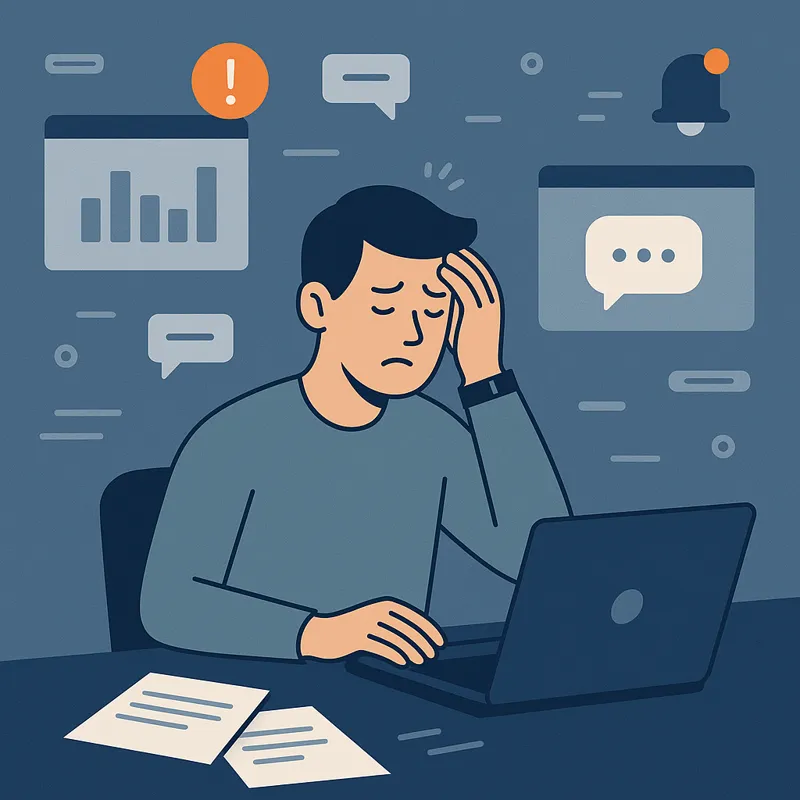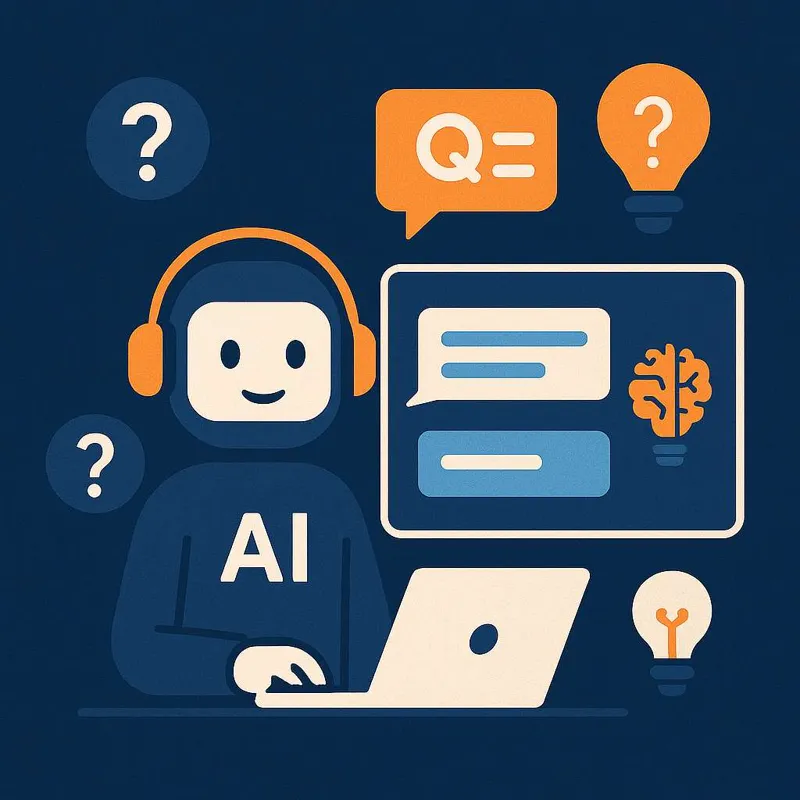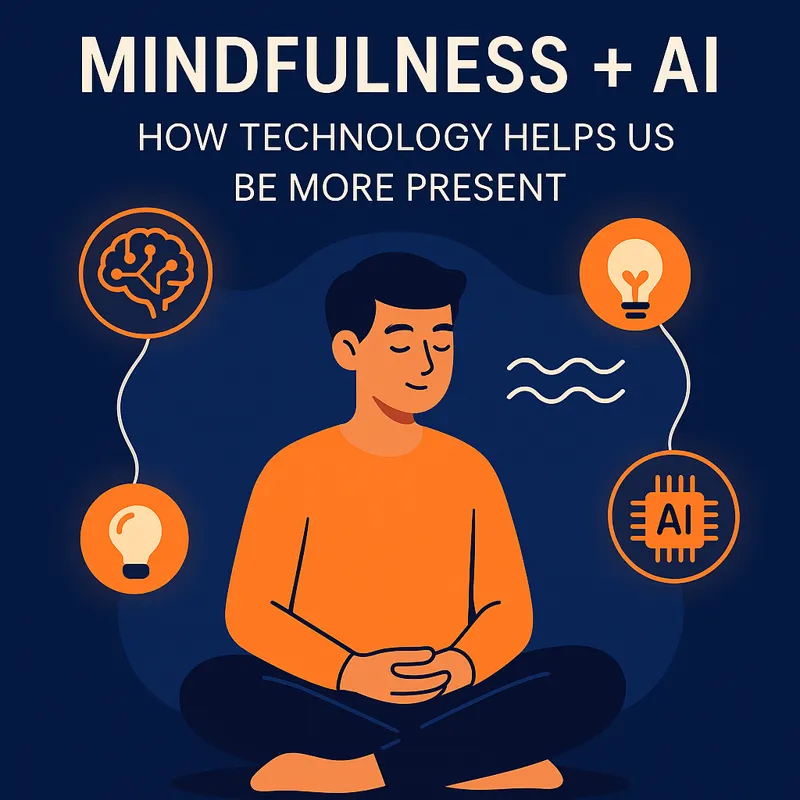We live in a world where attention is the new currency. Between constant notifications, endless to-do lists, and digital overload, staying present has become harder than ever. That’s why mindfulness is more than a buzzword—it’s a survival skill.
But here’s the twist: the very technology that distracts us is now offering tools to bring us back to focus. This is where Mindfulness + AI comes in. Artificial Intelligence isn’t just about automation and productivity; it can actually help us slow down, breathe, and reclaim our attention.
Why Mindfulness Matters More Than Ever
Mindfulness—the practice of being fully present in the moment—has been shown to:
- Reduce stress and anxiety.
- Improve focus and decision-making.
- Boost productivity and creativity.
- Strengthen emotional well-being.
A Harvard study found that people spend 47% of their waking hours thinking about something other than what they’re doing. That’s nearly half our lives lived in distraction.
Now imagine if AI could gently guide us back to the present, one mindful breath at a time.
How AI Is Entering the Mindfulness Space
AI isn’t just powering robots and chatbots; it’s reshaping how we approach wellness. Here’s how:
- Personalized Meditation Apps
- AI-driven apps like Calm and Headspace now tailor meditation sessions based on your stress levels, daily habits, and even voice tone.
- Wearable Stress Monitors
- Smartwatches and fitness trackers use AI to detect stress signals (like heart rate variability) and suggest breathing exercises in real time.
- Focus-Boosting Assistants
- Tools like Brain.fm use AI-generated soundscapes designed to improve concentration or relaxation.
- Emotion-Sensitive Journaling
- Apps like Reflectly use AI to analyze your journal entries, highlight emotional patterns, and suggest mindfulness practices.

Mini Case Study: Finding Calm with AI
Meet James, a 34-year-old project manager juggling deadlines, emails, and constant Zoom calls. His stress levels were at an all-time high, and he often found himself working late into the night.
Before AI Mindfulness Tools:
- Constant distractions from Slack and email.
- Daily stress headaches.
- Trouble sleeping due to racing thoughts.
After Integrating AI Tools:
- He started using a smartwatch that nudged him to breathe during stressful spikes.
- A personalized meditation app adapted sessions to his energy level.
- Brain.fm soundscapes helped him focus deeply for 90 minutes at a time.
👉 Result: Within 6 weeks, James reported 25% more focus during work hours and said he was sleeping an extra hour per night.
Before vs After: Life with Mindfulness + AI
Before AI Mindfulness Tools
- Scatterbrained and reactive.
- Constantly checking phone notifications.
- Work-life boundaries blurred.
After AI Mindfulness Tools
- Regular guided breaks and mindful breathing.
- Reduced digital distractions with focus modes.
- Improved mental clarity and emotional resilience.

What Do the Numbers Say?
The impact of mindfulness and AI isn’t just anecdotal—it’s backed by data:
- Statista (2024): The global meditation app market is projected to reach $6.8 billion by 2028, driven by AI personalization.
- McKinsey (2023): Companies adopting mindfulness and wellness programs report 20% higher employee engagement.
- Forbes (2025): Workers using AI focus tools experienced a 15–25% productivity boost compared to those without them.
Clearly, Mindfulness + AI isn’t just a trend—it’s a new way of working and living.
Practical AI Tools for Mindfulness
If you’re curious where to start, here are some beginner-friendly options:
1. Calm / Headspace (AI Meditation Apps)
- Personalized guided meditations.
- Sleep stories generated based on mood tracking.
2. Apple Watch / Fitbit (AI-Powered Wearables)
- Stress detection through biometrics.
- Real-time reminders for mindful breathing.
3. Brain.fm (AI Music for Focus)
- Soundscapes scientifically designed for deep work.
- Modes for relaxation, sleep, or creativity.
4. Reflectly (AI Journaling)
- Tracks mood patterns using NLP.
- Suggests reflective prompts to improve self-awareness.
5. RescueTime / Motion (AI for Focus)
- Automatically blocks distracting apps.
- Creates a schedule with mindful breaks built-in.
FAQs: Mindfulness + AI
1. Can AI really help me be more mindful?
Yes. While mindfulness is an internal practice, AI tools can create nudges, reminders, and personalized experiences that make it easier to stay consistent.
2. Aren’t apps just another distraction?
The difference lies in intention. AI mindfulness tools aren’t designed to keep you scrolling—they’re designed to help you pause, focus, and disconnect when needed.
3. Do I need expensive devices to get started?
Not at all. Many apps like Calm or Reflectly have free versions. Wearables can enhance the experience, but they’re not required.
4. Can AI replace traditional mindfulness practices?
No. AI is a support system, not a replacement. It makes mindfulness more accessible and personalized but doesn’t substitute the inner work.
5. Is AI mindfulness safe for data privacy?
Most reputable apps use encryption and anonymization. Always check their privacy policy before use.
Key Takeaways
- Mindfulness + AI = a powerful combo. AI makes mindfulness easier, more consistent, and more personalized.
- Real stories and benchmarks prove it works. People are saving time, reducing stress, and improving focus.
- It’s beginner-friendly. You don’t need expensive tech—just the right app or assistant.
- The future of work isn’t about doing more—it’s about being present.
Conclusion: Finding Balance in a Digital Age
In a world obsessed with doing more, Mindfulness + AI invites us to slow down and be present. Instead of fighting technology, we can use it as an ally to reclaim our focus, reduce stress, and live fuller lives.
The next time your smartwatch nudges you to take a deep breath, don’t ignore it—it might just be your best chance to reset.
👉 Ready to explore this balance? Check out a mindfulness app today and start your journey toward working smarter, stressing less, and living more.
These boost credibility (E-E-A-T) and help your SEO:
For credibility when you mention meditation apps.
Harvard Research on Mind Wandering
“People spend 47% of their time distracted”
Link: Harvard Gazette – Wandering Mind
Statista – Meditation App Market Growth
“Global meditation app market projected to reach $6.8B”
Link: Statista Meditation Apps
McKinsey – Mindfulness in the Workplace
“20% higher engagement with wellness programs”
Link: McKinsey – Wellness at Work
Forbes – AI & Productivity
“15–25% productivity boost with AI focus tools”
Link: Forbes AI Productivity

Leave a Reply